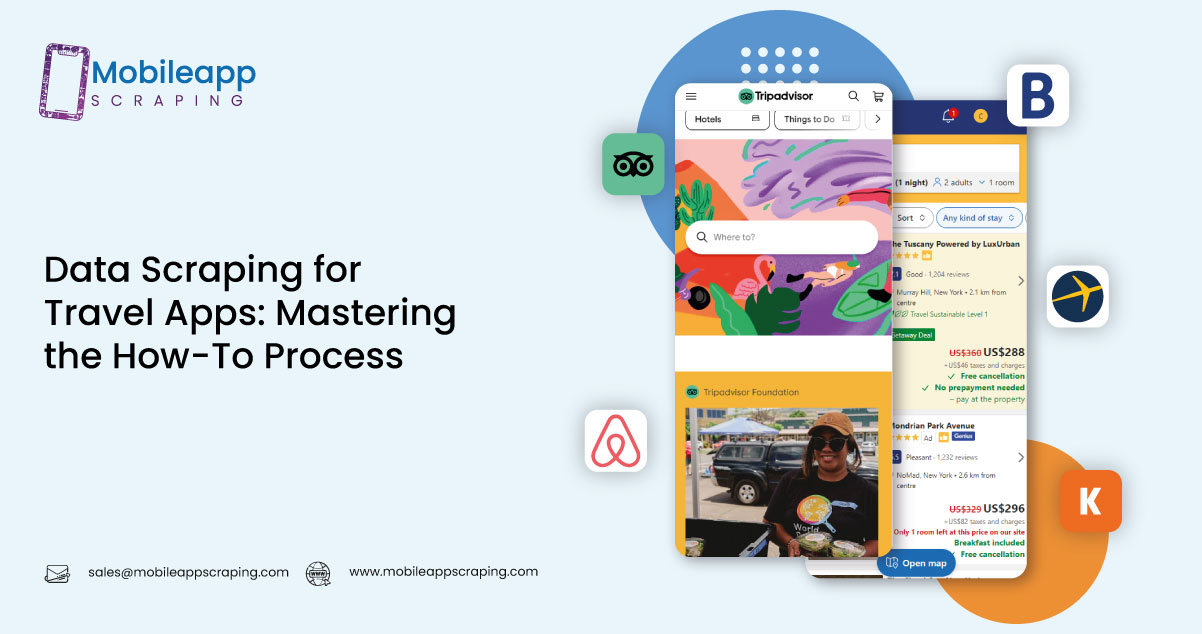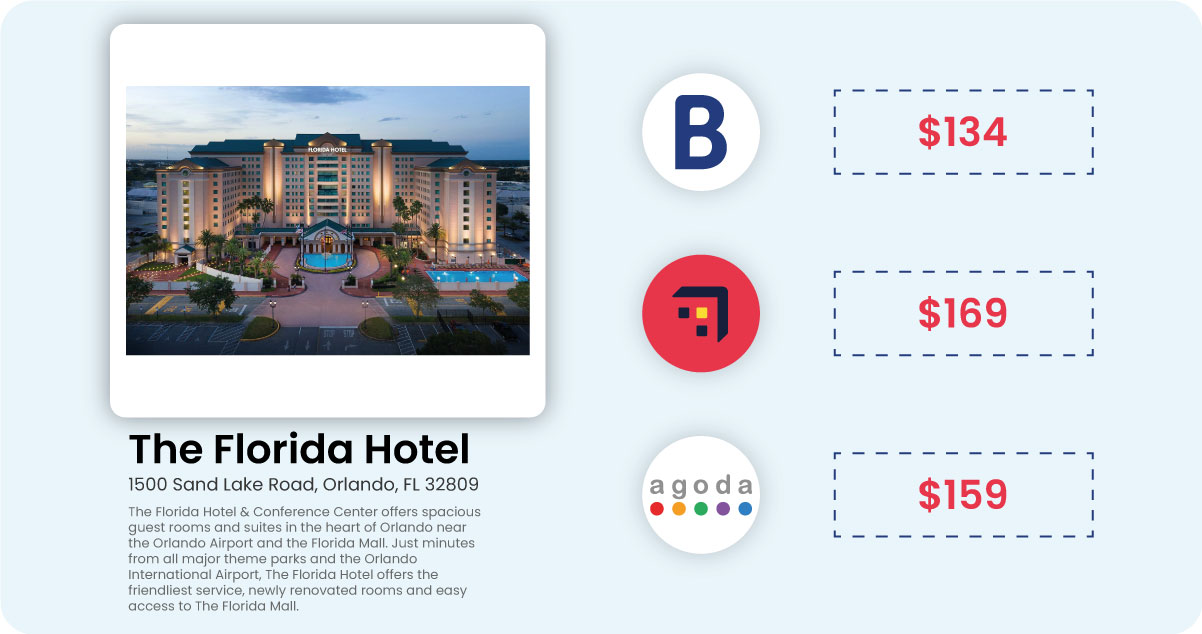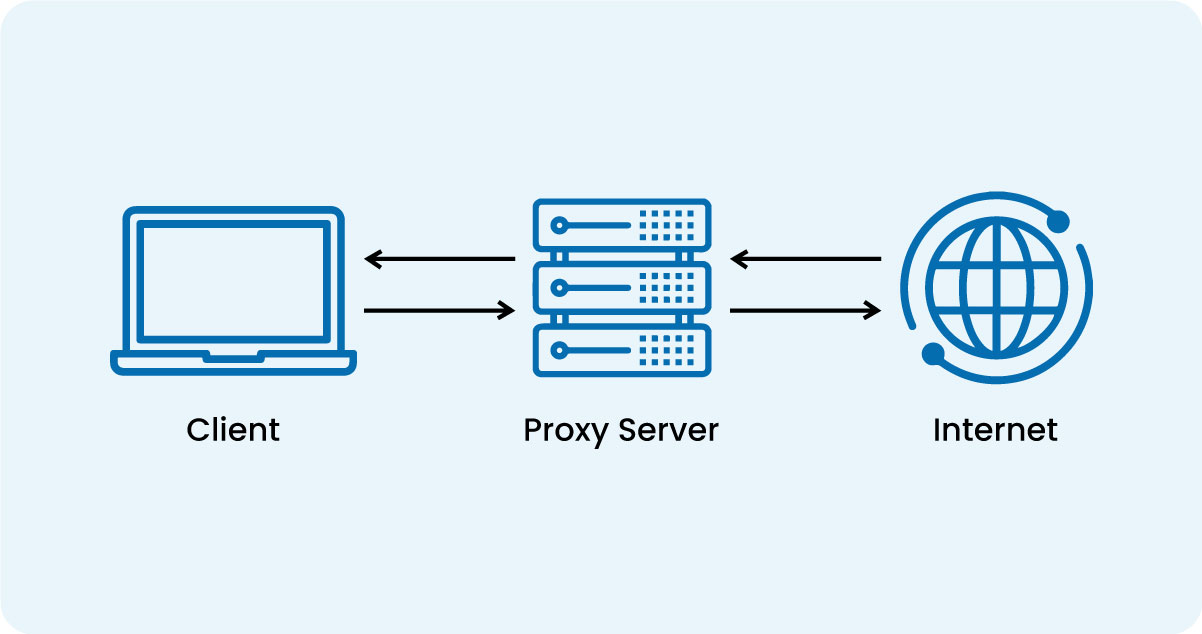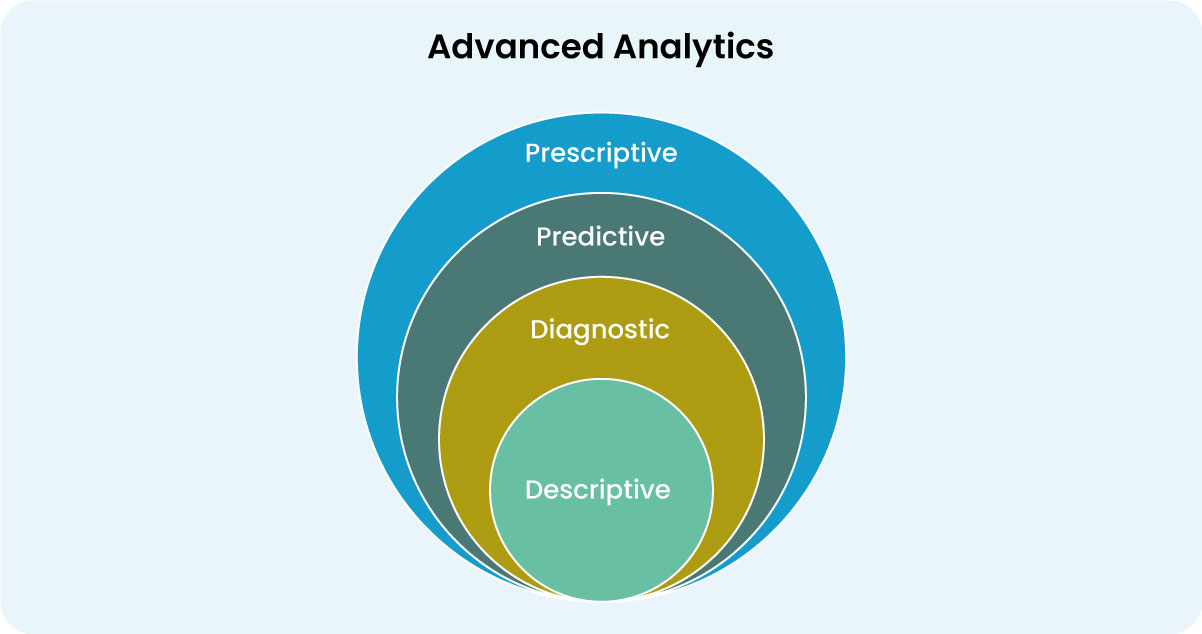
Data Scraping for Travel Apps: Mastering the How-To Process
Travel Mobile App Data Scraping refers to extracting relevant information and data from mobile applications designed for the travel industry. With the proliferation of mobile apps offering various travel services such as flight bookings, hotel reservations, car rentals, and tour packages, there is a wealth of valuable data available within these applications. Travel Mobile App Data Scraping involves using specialized techniques and tools to scrape or extract this data, including but not limited to prices, availability, reviews, ratings, location information, and user preferences. This scraped data can then be analyzed, processed, and utilized by businesses and organizations in the travel industry for various purposes, such as market research, competitor analysis, trend monitoring, pricing strategies, personalized marketing, and enhancing overall customer experience. By leveraging Travel Mobile App Data Scraping, businesses can gain a competitive edge and make informed decisions based on real-time insights from the travel app ecosystem.
How Can Travel Mobile App Data Scraping Be Used For Competitive Analysis?
Travel Mobile App Data Scraping is crucial in conducting competitive analysis within the travel industry. Here are some ways it can be used:
Pricing Comparison: By scraping data from various travel apps, you can compare prices offered by different competitors for flights, hotels, car rentals, and other travel services. This allows you to identify pricing trends, advantages, and opportunities to adjust your pricing strategy to stay competitive.

Service Offerings: Travel Mobile App Data Scraping enables you to analyze the services and features offered by your competitors. By comparing their offerings with yours, you can identify gaps or areas where you can differentiate and improve your services to attract more customers.
User Reviews and Ratings: Scrapping user reviews and ratings from travel apps provides valuable insights into customer feedback about your competitors' services. Analyzing these reviews can help you understand the strengths and weaknesses of your competitors and identify areas for improvement in your offerings.
Market Trends: You can monitor market trends and consumer preferences by scraping data from travel apps. This includes analyzing popular destinations, travel patterns, emerging trends, and customer preferences. Such insights help you align your business strategy with current market demands and anticipate future trends.
Advertising and Promotions: Travel Mobile App Data Scraping allows you to gather information about your competitors' advertising campaigns, promotions, and special offers. By understanding their marketing strategies, you can devise more effective advertising campaigns and promotions to attract customers.
Customer Acquisition and Retention: By scraping data from travel apps, you can identify potential customers who have shown interest in your competitors' services. This information can be used for targeted marketing campaigns, loyalty programs, and personalized offers to acquire and retain customers.
Overall, Travel Mobile App Data Scraping provides a comprehensive understanding of the competitive landscape, enabling you to make informed decisions, optimize your business strategies, and gain a competitive advantage in the travel industry.
What Are The Key Challenges In Scraping Data From Travel Mobile Apps?
Scraping data from mobile travel apps can present particular challenges due to the dynamic nature of the data and the technical complexities involved. Here are some critical challenges in scraping data from mobile travel apps:
Data Structure: Travel mobile apps often have complex and dynamically changing data structures. This can make extracting data consistently and accurately challenging, as the app's layout, data organization, and content may vary over time.
Anti-Scraping Measures: Travel app developers implement anti-scraping measures to protect their data and prevent automated scraping activities. These measures can include CAPTCHAs, IP blocking, user-agent detection, or obfuscating data to make scraping more challenging.
Authentication and Session Handling: Many travel apps require user authentication and maintain sessions to access specific data. Scraping such data requires handling authentication mechanisms, including logging in, managing cookies or tokens, and maintaining valid sessions throughout the scraping process.
Rate Limiting and Throttling: Travel apps may implement rate limiting or throttling mechanisms to control the number of requests an individual user or IP address makes. Scraping at a high rate may trigger these mechanisms, resulting in temporary or permanent blocks from accessing the app's data.
Data Volume and Scalability: Travel mobile apps generate vast amounts of data, making it challenging to efficiently scrape and process large volumes of data in real time. Scaling the scraping process to handle high traffic and large datasets requires robust infrastructure and optimization techniques.
Legal and Ethical Considerations: Scraping data from travel apps raises legal and ethical questions, as scraping without proper authorization or violating the app's terms of service may be illegal or unethical. It's crucial to ensure compliance with relevant laws and regulations and respect the app's data's privacy and intellectual property rights.
Data Quality and Accuracy: Ensuring the accuracy and reliability of scraped data can be challenging, as travel app data can be prone to errors, inconsistencies, or missing information. Data validation and cleansing processes are necessary to address these issues and ensure the quality of the scraped data.

To overcome these challenges, it is crucial to employ robust scraping techniques, adapt to changes in app structures, use anti-scraping mitigation strategies, respect app terms of service, and continuously monitor and adjust scraping processes to maintain data accuracy and compliance.
What Are The Popular Tools Or Techniques Used For Travel Mobile App Data Scraping?
Several popular tools and techniques are used for travel mobile app data scraping. Here are some of them:
Data Scraping Libraries: Python libraries such as BeautifulSoup and Scrapy are widely used for data scraping, including data from mobile travel apps. These libraries provide features for parsing HTML or XML, navigating the app's structure, and extracting desired data.
Proxy Servers: Proxy servers help to anonymize scraping activities by routing requests through different IP addresses. This helps bypass IP blocking or rate-limiting mechanisms implemented by travel apps and ensures more anonymity while scraping data.

Headless Browsers: Headless browsers like Puppeteer or Selenium allow for automated browsing and interaction with mobile travel apps. They can simulate user actions, such as clicking buttons or filling out forms, to access and scrape data that may be hidden or require interaction.
API Integration: Some travel apps provide APIs (Application Programming Interfaces) allowing authorized data access. By integrating with these APIs, developers can retrieve data in a structured and authorized manner, avoiding the need for traditional data scraping techniques.
Mobile App Automation Frameworks: Tools like Appium and UI Automator enable the automation of actions within mobile apps, making it possible to scrape data from travel apps by interacting with their user interfaces programmatically.
Data Extraction Services: Specialized data extraction services and platforms, such as Import.io or Octoparse, offer point-and-click interfaces or custom scraping solutions for extracting data from mobile travel apps without requiring extensive programming knowledge.
Reverse Engineering: In some cases, reverse engineering techniques may be employed to analyze a travel app's underlying APIs or network traffic to understand how data is transmitted and received. This can be useful for scraping data from apps that do not provide public APIs.
It's worth noting that the choice of tools and techniques for mobile travel app data scraping depends on factors such as the app's design, accessibility, security measures, and the specific requirements of the scraping task. Using these tools and techniques responsibly and within the legal and ethical boundaries set by the app's terms of service and applicable laws is essential.
How Can Travel Mobile App Data Scraping from Mobile App Scraping Help In Predicting Travel Trends?
Mobile App Scraping' Travel Mobile App Data Scraping services can significantly contribute to predicting travel trends. Here's how:
Comprehensive Data Collection: Mobile App Scraping specializes in scraping data from various travel mobile apps, collecting a wealth of information related to search queries, bookings, pricing, user reviews, and more. This comprehensive data collection ensures a robust foundation for accurate trend analysis.
Real-time Insights: By scraping data in real-time, Mobile App Scraping provides up-to-date information on travel patterns, customer preferences, and market dynamics. This enables businesses to stay ahead of the curve and make timely decisions based on the latest trends.
Advanced Data Analytics: Mobile App Scraping employs advanced data analytics techniques to process and analyze the scraped travel app data. Through data mining, pattern recognition, and statistical modeling, valuable insights are derived, enabling the identification of emerging travel trends.

Predictive Modeling: Mobile App Scraping leverages predictive modeling techniques on the collected data to forecast future travel trends. By identifying patterns, correlations, and seasonality in historical data, predictive models can generate forecasts and anticipate shifts in traveler behavior and preferences.
Market Segmentation: With Mobile App Scraping' travel app data scraping, businesses can gain a deep understanding of various market segments based on demographic information, travel interests, and user behavior. This segmentation helps in predicting trends specific to different customer groups and tailoring marketing strategies accordingly.
Competitive Analysis: Mobile App Scraping' data scraping services can include competitive analysis, where data from competitor travel apps is gathered and analyzed. This helps identify their strengths, weaknesses, and strategies, allowing businesses to anticipate and respond to market trends driven by competitors.
Actionable Insights: Mobile App Scraping doesn't just provide raw data; they offer actionable insights based on the scraped travel app data. These insights help businesses make informed decisions, refine their marketing campaigns, optimize pricing strategies, and enhance their services to align with predicted travel trends.
By partnering with Mobile App Scraping for Travel Mobile App Data Scraping, businesses gain access to a wealth of data, advanced analytics, and predictive modeling capabilities. This empowers them to make data-driven decisions, identify emerging travel trends, and stay ahead in the competitive travel industry.
How Can Travel Mobile App Data Scraping from Mobile App Scraping Be Used For Real-Time Monitoring And Alerts In The Travel Industry?
Real-Time Data Scraping: Mobile App Scraping can scrape data from mobile travel apps in real-time, capturing up-to-date information about various aspects of the travel industry, such as flight availability, hotel occupancy, pricing trends, and customer reviews. This real-time data scraping ensures businesses can access the most current and relevant information.

Competitive Monitoring: Mobile App Scraping can monitor competitor travel apps in real time, scraping data related to their offerings, pricing, promotions, and customer reviews. This enables businesses to stay informed about their competitors' activities and make timely adjustments to their strategies to remain competitive.
Pricing and Inventory Alerts: Mobile App Scraping' data scraping services can be configured to generate alerts based on specific pricing thresholds or inventory levels. For example, businesses can receive real-time notifications when flight prices drop below a certain level or hotel rooms reach a low availability threshold. These alerts help businesses capitalize on opportunities, adjust pricing strategies, and optimize revenue generation.
Customer Review Monitoring: Mobile App Scraping can scrape real-time customer reviews and ratings from mobile travel apps. By monitoring customer feedback as it is posted, businesses can promptly address any negative reviews, respond to customer concerns, and take appropriate actions to maintain a positive reputation. Real-time monitoring enables businesses to stay proactive in managing their online presence.
Travel Alert Aggregation: Mobile App Scraping can gather real-time travel alerts, such as flight delays, cancellations, weather-related disruptions, or travel advisories, from various sources. By aggregating and monitoring these alerts, businesses can keep their customers informed and provide timely updates, ensuring a smooth and hassle-free travel experience.
Customized Dashboards and Reports: Mobile App Scraping can provide customized dashboards and reports that display real-time data and key performance indicators relevant to the travel industry. These dashboards and reports offer a centralized view of important metrics, allowing businesses to monitor performance, track trends, and make real-time data-driven decisions.
By leveraging Mobile App Scraping' Travel Mobile App Data Scraping services, businesses can benefit from real-time monitoring and alerts in the travel industry. The real-time data from various sources empowers businesses to stay updated, respond swiftly to market changes, optimize operations, and deliver an exceptional travel experience to their customers.
What Are The Benefits Of Travel Mobile App Data Scraping from Mobile App Scraping for Market Research?
Comprehensive Data Collection: Mobile App Scraping can scrape a wide range of data from mobile travel apps, including user searches, bookings, reviews, ratings, pricing information, and competitor data. This comprehensive data collection provides market researchers with a rich and diverse dataset to analyze and derive insights.
Real-time and Up-to-date Information: Mobile App Scraping' data scraping services provide real-time and up-to-date information from mobile travel apps. This ensures market researchers can access the most current data, allowing them to track real-time market trends, consumer behaviors, and competitive activities.
Consumer Insights and Preferences: Travel Mobile App Data Scraping allows market researchers to gain valuable insights into consumer preferences, behaviors, and trends. Researchers can identify popular destinations, preferred amenities, customer satisfaction levels, and emerging travel trends by analyzing user searches, booking patterns, reviews, and ratings. These insights aid in developing targeted marketing strategies and tailoring services to meet customer demands.
Target Market Segmentation: Mobile App Scraping' data scraping services provide researchers with the ability to segment the market based on various criteria, such as demographics, travel preferences, and purchasing behaviors. This segmentation enables businesses to identify specific customer segments, understand their unique needs, and customize their marketing approaches and service offerings.
Pricing and Revenue Optimization: The pricing data scraped from mobile travel apps allows market researchers to analyze pricing trends, competitive rates, and market dynamics. This information helps businesses optimize their pricing strategies, adjust rates based on demand, and identify opportunities for revenue growth.
Brand Reputation Monitoring: Mobile App Scraping can scrape customer reviews, ratings, and social media mentions from mobile travel apps. This data allows market researchers to monitor and analyze brand reputation, identify areas for improvement, and proactively address customer concerns. By understanding customer sentiment and feedback, businesses can enhance their brand image and customer satisfaction.
Data-driven Decision Making: Travel Mobile App Data Scraping gives market researchers many data-driven insights. By analyzing the scraped data, researchers can make informed decisions regarding product development, marketing campaigns, customer targeting, and strategic planning. The availability of accurate and reliable data enhances the accuracy and effectiveness of decision-making processes.
Travel Mobile App Data Scraping from Mobile App Scraping empowers market researchers with valuable data, insights, and competitive intelligence. It enables businesses to stay informed, adapt to market trends, enhance customer experiences, and make data-driven decisions that lead to improved market performance and business growth.
Mobile App Scraping' mobile travel app data scraping has proven to be a game-changer in the travel industry. By leveraging cutting-edge scraping technology, Mobile App Scraping has provided travelers with real-time, comprehensive information, enabling them to quickly make informed decisions and plan their trips. Furthermore, the travel industry has benefited from the insights derived from this data, allowing businesses to optimize their operations and cater to the evolving needs of their customers.
If you're ready to take your travel experience to the next level, download the Mobile App Scraping app today and unlock a world of possibilities. Our data scraping technology gives you access to the most up-to-date and reliable information, ensuring a seamless and unforgettable journey. Don't miss out on this opportunity to transform the way you travel. Start exploring with Mobile App Scraping now!